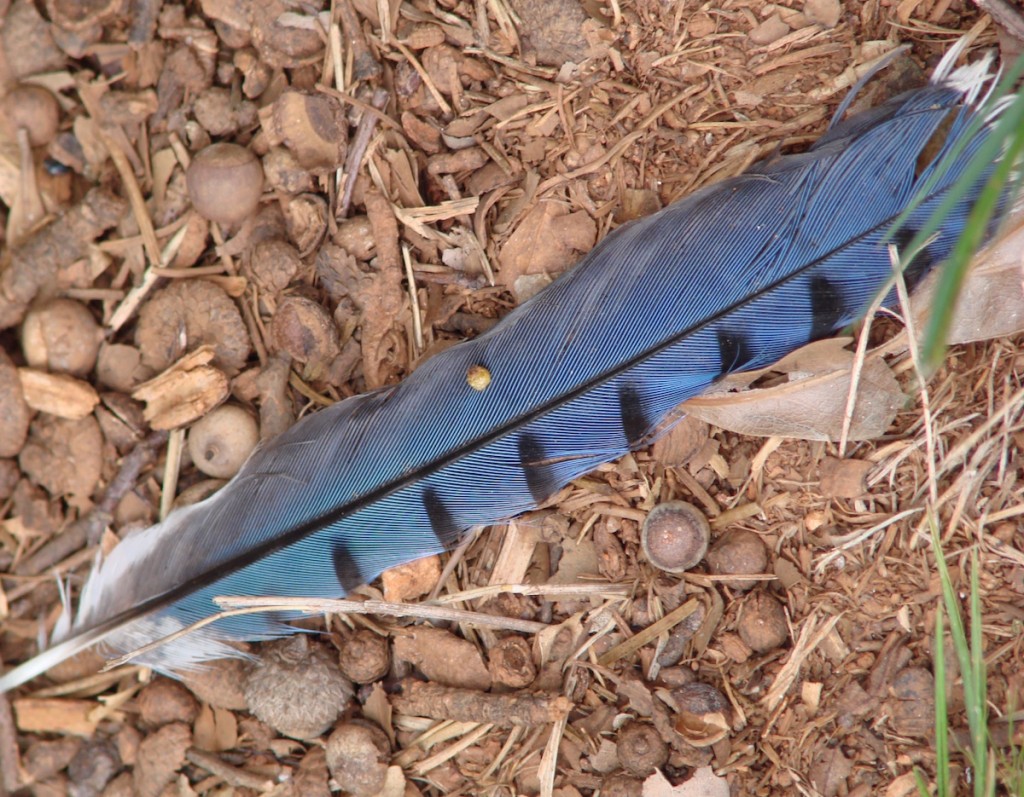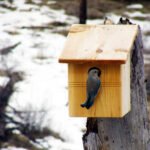
You may have heard the urban legend. One day a guy is hiking along a trail and he spots a gorgeous-looking feather on the ground. He picks it up and carries it around in his hand, looking at it with wonder and curiosity. That’s when he’s arrested and fined $100,000 for possessing a feather illegally.
Sounds preposterous right?
Wrong. While the details of the urban legend may be exaggerated, it is in fact illegal to collect certain bird feathers thanks to the Migratory Bird Treaty Act of 1918.
The nearly 100-year-old act was put into place to protect birds that migrated between the United States and Canada because of a decline in bird populations. Hunting was fairly rampant because the fashion during that time featured hats adorned with bird feathers.
The treaty makes it unlawful to hunt, take, capture, kill, or sell migratory birds. The statute extends to any bird part, including feathers, eggs, and nests.
It seems harmless to pick up a nest or feathers you find on the ground, but it’s against the law because it’s difficult for enforcement officers to figure out whether it was obtained through ignominious or accidental means. So they put the burden on the carrier of the feather and took away the question.
More than 800 species are currently on the list, including the Bald Eagle, Black-capped Chickadee, Northern Cardinal, American Crow, Canada Goose, Mourning Dove, Barn Swallow, Cedar Waxwing, Barn Owl, and more. That means the feathers of all of these birds are forbidden.
An exemption to the act does exist, however. The Eagle Feather Law allows the collection of Golden Eagle and Bald Eagle feathers for religious purposes by Native Americans. In order to quality, individuals must have certifiable ancestry and be enrolled in a tribe.
 Despite sounding a tad ridiculous these days, the roots of the law are sound and still serve a purpose.
Despite sounding a tad ridiculous these days, the roots of the law are sound and still serve a purpose.
You might also be asking yourself what about the bird feathers you see at stores.
Since certain species aren’t protected under the Migratory Bird Treaty Act, picking up and possessing their feathers is perfectly legal. That means nonnative species like House Sparrows and European Starlings aren’t covered, along with nonmigratory birds like turkeys, chickens, Mute Swans, quails, and the like.
So the next time you see a bird feather on the ground, you’d better be sure it’s from an invasive species or nonmigratory bird or leave it alone.



189 Comments
Thank you for that advice. I would be a person who would have a hard time not picking up a feather that I came across on the ground. Like you I have always felt like they were gifts. I’ve never thought much about their possibly being laws against taking fallen feathers. But I read something recently about not being able to pick up eagle feathers. Which I would never expect to be worthy of finding. But we do have 2 red tail hawks nesting either on or near our land. After seeing one land in our hayfield and then fly up onto the power pole in the center of the field I was thinking how cool it would be to find one of their feathers one day. It made me start wondering about the laws. So I did a search and ended up here.
I decided that if I ever find one I will quietly take it and leave an offering. I was wondering if there is a special type of tobacco that I should use? I don’t smoke, but it would seem like something nicer would be in order anyway. Or if what else might be acceptable.
We try to respect the small piece of land that my husband inherited. It’s only 20 acres, but we are working on managing it for wildlife. Which will become more important soon since a large subdivision is about to be started on land that abuts it. I wish with all my heart that we had been able to purchase the rest of the 61 acres that had belonged to my husband’s daddy. Or to at least get it into the hands of someone who wouldn’t have made it part of this large subdivision. But it was all we could do to fight to hold on to the 1/3 that my husband managed to keep. We fear that once the homes go in and the property values rise that we might not be able to afford the taxes.
But for as long as we can we plan to try to be good stewards and to teach our son to respect the land and the animals that grace it. I am working on making a list of all the bird species that visit or live there. Cardinals love the trees that grow on each side of easement road that divides the property. I love seeing them flitting from tree to tree. They seem so joyous.
How can they prove you’re not a native American?
I walk the woods and deserts for relaxation and exercise. I pick up feathers which have been molted or are leftovers when a bird has been eaten by other animals. These are placed in my braid attached to my hat.
To use some big high sounding words to reprimand and speak evil against a child who is enjoying nature and collecting feathers which the bird has shed. That sir, is disturbing. The child is not killing animals or birds.
Mankind can try but will never be capable of deciding the fate of the planet for betterment. A bit too much evil and forcefulness against those who cannot protect themselves, (IE), a little girl.